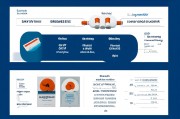本文目录导读:
- Introduction
- The Role of Acceleration in Technology and Innovation
- Acceleration in Business and Leadership
- Personal Acceleration: Growth in the Fast Lane
- The Ethical and Societal Implications of Acceleration
- Conclusion: Mastering the Art of Acceleration
Introduction
In today’s rapidly evolving world, the ability to accelerate—whether in business, technology, or personal growth—has become a defining factor for success. The concept of acceleration goes beyond mere speed; it represents efficiency, adaptability, and the capacity to outpace competition. From technological advancements to corporate strategies and personal development, acceleration is reshaping industries and lives. This article explores how acceleration drives innovation, the challenges it presents, and how individuals and organizations can harness its power effectively.
The Role of Acceleration in Technology and Innovation
Digital Transformation and AI
The digital age has forced businesses to accelerate their adoption of new technologies. Artificial Intelligence (AI), automation, and cloud computing are revolutionizing industries by enabling faster decision-making and streamlined operations. Companies that fail to accelerate their digital transformation risk falling behind competitors who leverage these tools for efficiency and scalability.
For example, AI-powered analytics can accelerate data processing, allowing businesses to predict market trends in real time. Similarly, automation reduces human error and speeds up repetitive tasks, freeing up employees for more strategic work.
The Rise of Agile Development
In software development, the Agile methodology has become synonymous with acceleration. Unlike traditional waterfall models, Agile promotes iterative progress, continuous feedback, and rapid deployment. Companies like Google and Amazon use Agile principles to accelerate product launches, ensuring they stay ahead in competitive markets.
The Need for Faster Connectivity
The demand for high-speed internet and 5G networks underscores society’s reliance on acceleration. With 5G, data transmission speeds increase exponentially, enabling innovations like autonomous vehicles, smart cities, and telemedicine. The ability to accelerate communication and data exchange is transforming how we live and work.

Acceleration in Business and Leadership
Speed as a Competitive Advantage
In business, speed is often the difference between success and failure. Companies like Tesla and SpaceX thrive because they accelerate innovation cycles, pushing boundaries faster than traditional industries. Elon Musk’s philosophy of "fail fast, iterate faster" highlights how rapid execution leads to breakthroughs.
The Challenge of Burnout
While acceleration drives progress, it also poses risks. The pressure to move quickly can lead to employee burnout, rushed decisions, and quality compromises. Leaders must balance speed with sustainability, ensuring that teams remain productive without sacrificing well-being.
Lean and Scalable Operations
Startups and enterprises alike adopt lean methodologies to accelerate growth. By minimizing waste and optimizing workflows, businesses can scale efficiently. The rise of remote work and digital collaboration tools further supports this acceleration by breaking geographical barriers.
Personal Acceleration: Growth in the Fast Lane
Lifelong Learning and Skill Development
In a fast-changing job market, individuals must accelerate their learning to stay relevant. Online courses, micro-credentials, and AI-assisted learning platforms enable professionals to upskill quickly. The ability to adapt and learn at speed is now a career necessity.
The Power of Habits and Productivity Hacks
Personal acceleration isn’t just about working harder—it’s about working smarter. Techniques like the Pomodoro method, time blocking, and digital detoxes help individuals maximize efficiency. High performers understand that acceleration requires discipline, not just speed.
Mental and Physical Resilience
Sustaining acceleration demands resilience. Mindfulness, exercise, and proper rest prevent burnout. Just as a race car needs maintenance, humans need balance to perform at peak speeds consistently.
The Ethical and Societal Implications of Acceleration
The Digital Divide
While technology accelerates progress, it also widens gaps between those with access and those without. Governments and corporations must ensure that acceleration benefits all, not just the privileged few.
Environmental Impact
Rapid industrialization and consumption come at an environmental cost. Sustainable acceleration—such as green energy adoption and circular economies—must be prioritized to prevent long-term damage.
The Future of Work
Automation and AI accelerate job displacement while creating new opportunities. Society must adapt through reskilling initiatives and policies that support workforce transitions.
Conclusion: Mastering the Art of Acceleration
Acceleration is a double-edged sword—it drives progress but demands responsibility. Whether in business, technology, or personal life, the ability to move quickly while maintaining balance is the key to sustainable success. By embracing innovation, fostering resilience, and addressing ethical challenges, we can harness the power of acceleration to shape a better future.
The race isn’t always to the swift, but to those who know how to accelerate wisely.
(Word count: 1,012)









